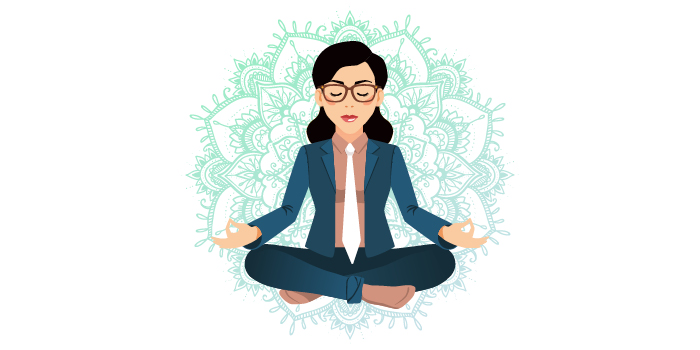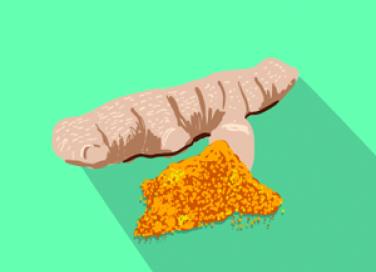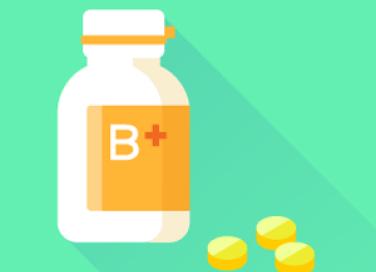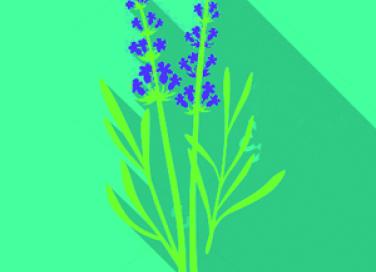


Sign-up for {N}power to get exclusive discounts, newsletters, members-only features, and more!


We live in a world where stress is ubiquitous. There’s stress in our relationships, stress with our kids, stress in our jobs, financial stress, health stress…and the list goes on. The reality is, we’re never going to entirely rid ourselves of stress but reducing our stress is crucially important. Thankfully there are many ways in which we can do this to mitigate the damage stress can otherwise cause.
According to the American Psychological Association,[fn value=1][/fn] 75% of adults experienced moderate to high levels of stress in the past month and nearly half reported their stress has increased in the past year. If left unchecked stress has been shown to play a role in cancer [fn value=2][/fn] , heart disease,[fn value=3][/fn] and inflammation[fn value=4][/fn] —inflammation being the root cause of many disease states. However, diet, supplementation, and lifestyle can all make a big difference in our stress levels and can help to seriously reduce stress-related conditions, such as anxiety.

It’s no secret that when we’re stressed we turn to comfort foods to ease our anxiety, or to coffee to help kick us into gear so we can accomplish all the things required of us on our never-ending “to do” lists. We may even indulge in a little too much alcohol to numb the feelings of overwhelming. But unfortunately turning to sugar, carbs, alcohol, and coffee will derail our efforts to deal with stress and sabotage our health, maybe even leading us down a dangerous path toward burnout. Therefore, fixing up the diet is the first step in tackling stress head-on.
To give an example of how these foods can negatively impact stress levels let’s look at sugar. Sugar consumption causes stress on the brain, in particular on the hippocampus, the part of the brain that regulates emotions and memory. Studies have shown[fn value=5][/fn] [fn value=6][/fn] that sugar can inflame the hippocampus and cause memory issues.[fn value=7][/fn] And those with imbalanced blood sugar, such as diabetics, have been shown[fn value=8][/fn] to be more prone to anxiety and depression. What’s more, eating sugar spikes your blood sugar, which eventually leads to a blood sugar crash. This yo-yo puts strain on your adrenal glands as they try to compensate for the drop in blood sugar by pumping out more cortisol. And further taxing our adrenal glands is the last thing we want when we’re trying to better manage our stress.
But there are also some functional foods that might have a role in alleviating stress and its related conditions such as depression and anxiety. Functional foods are foods that give you more bang for your health buck.
One such food is turmeric, which has been studied for its ability to alleviate depression and anxiety. In one study[fn value=9][/fn] it was shown that curcumin (the active component of turmeric) may be a powerful treatment for those suffering from major depressive disorder. Another study showed that curcumin alone was as effective as Prozac[fn value=10][/fn] in alleviating depression. Two additional studies[fn value=11][/fn] [fn value=12][/fn] showed curcumin acted as a better antidepressant than placebo, and was more effective than placebo in reducing anxiety. When consuming turmeric—either in food or as a supplement—ensure you are also consuming black pepper with it. This is because curcumin is poorly absorbed by the body but piperine in black pepper increases the bioavailability of curcumin by up to 2000%.[fn value=13][/fn] Consuming it with a healthy fat, such as coconut oil, also increases bioavailabilty.

Because stress is a given for pretty much everyone in these modern times and because diet alone cannot mitigate the burden stress places on the body, supplements are a vital addition to your stress-busting game plan. One of these supplements is vitamin C.
Our adrenal glands, the glands that pump out our stress hormones, chew through vitamin C like no one’s business when we’re stressed. And that’s unfortunate because vitamin C is really one of our best stress-busting allies. Studies have found that vitamin C supplementation reduces the physical and mental stress response, including lowering blood pressure and cortisol levels, our main stress hormone. Those with the highest levels of the vitamin seem to recover from stress more easily compared to those with low levels.[fn value=14][/fn] [fn value=15][/fn] Using a good quality vitamin C supplement is essential during stressful times. For serious adrenal support, look for liposomal vitamin C, which has a very high absorption rate. Other options include vitamin C buffered with minerals that are gentle on the stomach and vitamin C with bioflavonoids to aid in absorption. A dose of 1,000 mg of liposomal vitamin C is a good starting point for most.
Adaptogens can also be beneficial. As their name suggests, adaptogens are plants that help the body adapt to stress. While adaptogens, by definition, have a general balancing effect on the body some have been researched for their specific effects: Rhodiola is an especially nourishing tonic for the nervous system and can reduce both mental and physical fatigue under stressful conditions;[fn value=16][/fn] ashwaghanda has been shown to lower cortisol levels and reduce self-reported stress and anxiety among chronically stressed adults;[fn value=17][/fn] and ginseng helps reduce fatigue[fn value=18][/fn] and support immunity.[fn value=19][/fn] [fn value=20][/fn]
B vitamins are important for the normal functioning of the nervous system and can often bring relaxation to those who are feeling stressed. B vitamins are used to support not only stress but also fatigue, anxiety, nervousness, and even insomnia. Additionally, they can enhance overall mood because they play a role in the production of various neurotransmitters including serotonin and GABA that play important roles in mood and relaxation. Because some people (up to 50% of the population according to some estimates) are not able to metabolize certain B vitamins due to a genetic mutation, ensure you take the “methylated,” or activated forms of the following B vitamins: methyltetrahydrofolate (folate), methylcobalamin (B-12), and pyridoxal 5-phosphate (B-6).

Essential oils are also starting to emerge as powerful stress reduction therapies. Lavender essential oil has been shown to change brain wave patterns, making people feel better.[fn value=21][/fn] This might be why researchers decided to go a step further and study the effects eating lavender would have on anxiety levels. In a double-blind study[fn value=22][/fn] researchers compared capsules of lavender-infused oil to Lorazepam, (also known as Ativan) for generalized anxiety disorder. At the end of the study lavender appeared to outperform Ativan but without the potential for addiction, which so often comes with benzodiazepine drugs such as Lorazepam, and also without the potential side effects, which researchers are starting to realize are far more detrimental than first thought, in particular to cognitive function.[fn value=23][/fn] [fn value=24][/fn] [fn value=25][/fn] Use the oil in a diffuser, or look for supplements that contain lavender essential oil.
Another essential oil to consider when trying to alleviate stress and anxiety is sweet orange. When used to infiltrate a dentist waiting room[fn value=26][/fn] sweet orange oil was shown to reduce anxiety and improve moods in patients. An additional study[fn value=27][/fn] also concurred that sweet orange oil has anti-anxiety effects.

One of the best lifestyle strategies for stress relief is meditation. Meditation has made a name for itself in recent years as a powerful stress reducer and overall health enhancer. And indeed, study after study is proving the miraculous benefits of meditation ranging from increasing immune function,[fn value=28][/fn] [fn value=29][/fn] decreasing pain,[fn value=30][/fn] increasing happiness,[fn value=31][/fn] [fn value=32][/fn] decreasing ruminative thinking,[fn value=33][/fn] lowering cortisol levels[fn value=34][/fn] [fn value=35][/fn] decreasing anxiety,[fn value=36][/fn] [fn value=37][/fn] and decreasing stress.[fn value=38][/fn] [fn value=39][/fn]
In one study,[fn value=402][/fn] caregivers of family members with dementia were randomized to do just twelve minutes of meditation daily for eight weeks. This amounted to only 10 hours in total meditation time. Still, those who performed the meditation saw significant improvement to their mental health and psychological function.
Simply spending time in nature can also have a significant effect on stress levels. Coined by the Japanese in the early eighties, “forest bathing” lowers cortisol levels, reduces blood pressure and pulse rate, and increases the activity of the parasympathetic nervous system, or the “rest and digest” system.[fn value=41][/fn]
Finally, The Myth of Stress (Atria Books 2010) is a compelling read for anyone dealing with stress. It explains the nature of stress, how we create our own stress, and how to shift our thoughts to better handle perceived stresses.
At the end of the day, there’s nothing we’ll be able to do to completely eliminate stress. The best we can do is to reduce our stress levels as much as possible by implementing diet and lifestyle techniques accompanied by suitable supplementation to support the body. As Benjamin Franklin said, an ounce of prevention is worth a pound of cure. If left unchecked, stress can manifest into some very unpleasant symptoms, so start now to reduce your stress in order to remain free from its nasty side effects.



Sign-up for {N}power to get exclusive discounts, newsletters, members-only features, and more!